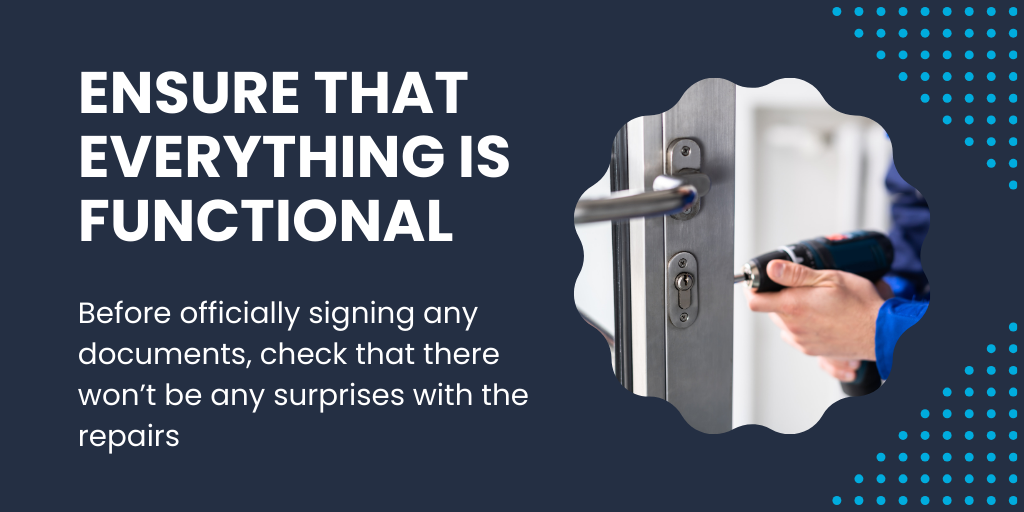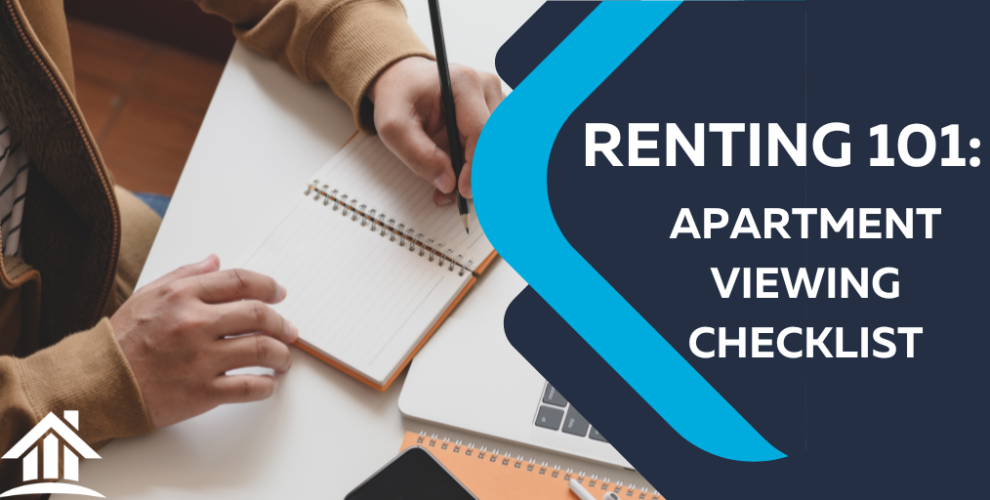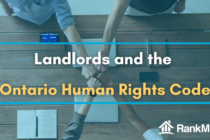So you have decided to move out and now you’re looking for an apartment. Where do you start, and how can you tell if a place is right for you? Here are some tips to help you begin your search and stay organized along the way.
1. Start with Online Resources to finding a place.
Checking out multiples sites ensures you will get a wider range of listings and setting up alerts to get notified when new properties match your preferences is a great idea.
2. Know your Priorities.
Before scheduling viewings, it’s helpful to list your non-negotiables.
Ask yourself:
- Do I need parking?
- Is an in-unit laundry a must-have?
- Do I prefer a pet-friendly building?
- Is access to public transportation important?
Having these clear priorities will make your search more efficient and focused.
3. Research the Neighborhood.
Don’t just look at the apartment—consider the neighborhood as well. Research the area’s safety, amenities, and overall vibe. Here are some things to check:
- Proximity to schools, parks, or public transportation – Is it family-friendly or suited to your lifestyle?
- Access to shops and restaurants – How convenient is it to run errands or dine out?
- Commute times – How long will it take to get to work or school?
For more insight, check out our blogs on some popular neighborhoods:
Top 11 Best Family-Friendly Neighborhoods in Toronto
Best 10 Neighbourhoods in Brampton for families
Best Neighbourhoods in Calgary for families with children
Best 12 Family-friendly neighbourhoods in Edmonton you can’t miss
4. Get familiar with Rental Prices in the Neighborhood you are looking to rent.
Getting yourself familiar with the rental prices in the area can help you narrow down your options and align them with your budget. You can also have ask an experienced real estate agent to pull out rental stats for your shortlist of areas so you can compare how much the rent should actually be in that micro market.
What is the Average Cost to Rent a Condo in Toronto?
According to the City of Toronto, the average rental prices in 2024 are as follows:
- Studio apartment: $1,427
- 1-bedroom apartment: $1,708
- 2-bedroom apartment: $1,992
- 1-bedroom townhouse: $1,771
- 2-bedroom townhouse: $1,755
We still advise you to check what the current rents are using the help of a real estate agent who can advise you on recent rented out units and price points.
5. What are your rental rights in Canada?
Rental rights are governed by provincial and territorial laws in Canada and each region has its own specific regulations. However, some common rights and protections exist across Canada including:
- Right to a safe, livable rental unit
- Right to stay in the unit as long as they follow the terms of the lease
- Rent control and rent increases
- Right to Privacy
- Discrimination won’t be tolerated under the Canadian Human Rights Act
- Landlords can only evict for specific reasons that violate lease terms or non-payment of rent or property damage
- Tenants have rights to request repairs.
- Deposit regulations vary by province but typically no more than one month’s rent to cover potential damage. However, this doesn’t cover normal wear and tear.
- Tenants need to check with landlord on rules of subletting
- Ending tenancy must happen by giving proper notice.
What are you Rights as a Tenant in Ontario?
As a tenant, Ontario has rights that protect you during the whole rental process:
- Rent Increase: In 2024, rent cannot increase by more than 2.5% in Ontario. There is a guideline set every year, so be sure to keep yourself updated.
- Right to Entry: According to the Residential Tendencies Act (2006), landlords are required to provide written notice at least 24 hours before entering the unit, except for emergencies. The notice must contain the reason for entry and fall between the hours of 8am to 8pm.
- Evictions: A landlord must provide written notice before evicting a tenant containing the relevant information needed on the form. There is a list of valid reasons and the amount of advance notice that is needed accordingly.
There are other rights under the Ontario Human Rights Code that would be applicable during the rental process.
6. The Lease
A lease is a legal agreement between the landlord and the tenant. It may be overwhelming at first, but there are some important terms and conditions to pay attention to:
- Lease Length: This typically varies with different landlords. Ensure that the duration is what you discussed before. Check what the process is for renewal and what the deadline is for notifying the landlord.
- Rent and Fees: Confirm the monthly rent and if there are any additional fees such as maintenance fees, parking fees, or pet fees.
- Maintenance: Understand the process for requesting maintenance and repairs. Inquire about the average response time and who is responsible for covering the costs.
- Subletting: Review the policies regarding subletting and having guests. Ensure that they align with your lifestyle and needs.
Here are checklists of questions that can be a good resource to helping you find your perfect apartment.
Before the Viewing – Questions to ask the potential landlord
- How many bedrooms are in the apartment?
- How much is the rent?
- When is the apartment available? When do the previous tenants move out?
- Are utilities included in the rental cost, if not, how much will they be per month?
- Are there laundry facilities?
- Is there parking included in the rental fee?
- Do you have any rules about pets? Smoking? Guests?
- Where is the closest public transportation located?
- Is it possible to share the internet costs (if the unit is a basement apartment or shared accommodation)
- Why did the person move out?
- Are there any additional fees?
During the Viewing – Items to check

- Do you need to set up service for the power? Cable? Hydro? Internet?
- Is there air conditioning and/or central heat?
- Are the laundry facilities pay-per-use or free use?
- Are you sharing a space with other people? Are the other people there to meet?
- Are there working smoke detectors?
- Is there a fire extinguisher in the apartment? Are there enough electrical outlets in each room?
- How many telephone jacks are in the apartment and where are they located?
- Is there cable television hook-up?
- Is the hot water working?
- Do faucets work with consistent water pressure?
- Do the door locks work?
- Do the windows have working locks and is it easy to open and close?
- Do the appliances (oven/stove/fridge) function properly?
- Are there major cracks or leaks in the ceilings or walls?
- Who pays for rental damages?
- Is there a damage deposit, what is considered damages?
- What is the procedure for maintenance requests?
Things to Consider
- Is the apartment close to work or school?
- Are there grocery stores or bus stops nearby?
- If sharing, are you living with people you would want to live with?
- Do you need to pay first and last, or damage deposits – check with your local rules to see which a landlord can charge in your area
- Do any additional expenses from this unit be accommodated for in your budget?
- Does it meet your needs for laundry? Parking? Internet? Guests?
- How long is the lease agreement?
- At what point in the lease agreement can the landlord increase the rent?
- What is the policy for subletting?
Take your time while you’re inspecting your potential apartment! Don’t rush and be thorough. You want to make sure that you choose a place you can picture yourself living in happily.




